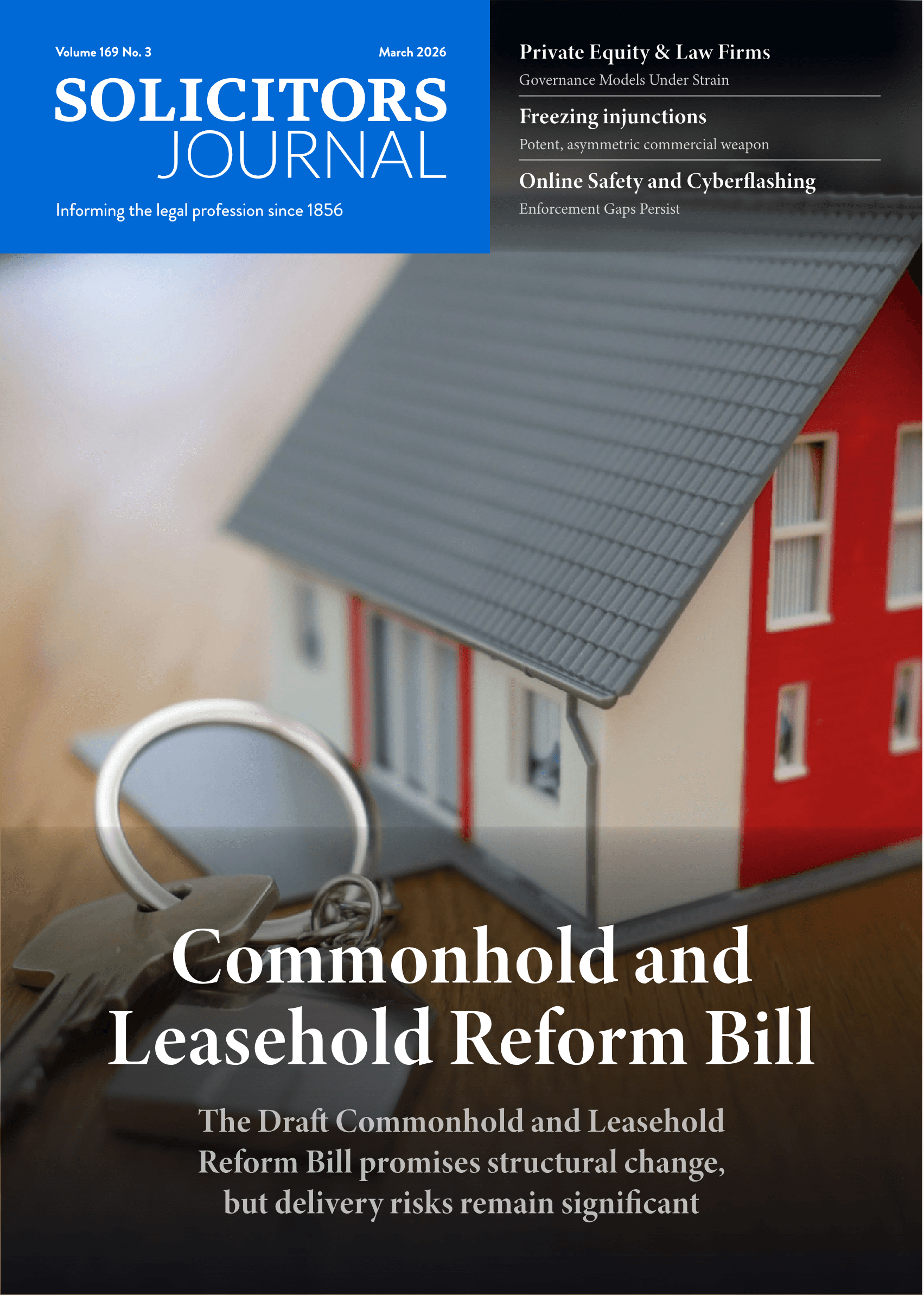Achieving true gender equity and parity in the legal profession

Kaajal Nathwani details the current state of play in the sector
As we reach the tail end of March, Women’s History Month, let’s focus our attention on the legal profession and whether patriarchal expectations are redundant, or whether we are another 100 years from achieving true equity and parity in the profession.
The Law Society is committed to a public mandate, which states ‘whoever you are and whatever your background we want you to have the opportunity to succeed in this rewarding profession,’ professing to support not only individuals, but also organisations to accelerate change. But we have to ask, has this translated into on the ground actions and what are the results in recent years?
The legal profession
It’s been 100 years since the first women qualified as solicitors in England and Wales. A mere 109 years ago, the Bebb v Law Society case had reconfirmed that women were not allowed to join the profession as they were not classified as ‘persons’ under the Solicitors Act 1843. It wasn’t until 1919, that the Sex Disqualification (Removal) Act at last opened up the legal profession to women.
At the time, the legal profession was ahead of other male dominated industry sectors, and whilst progress has continued in terms of representation across the genders, in other key areas aligned to diversity and inclusion the trajectory has been less enthusiastic and disparities remain evident.
Current figures suggest 52.6 per cent of solicitors currently on the roll are women, the same is not true for senior leadership and partner positions which hovers around the 35 per cent mark. The Women in Law pledge was launched in partnership with the Bar Council of England and Wales and the Chartered Institute of Legal Executives. The primary purpose of the pledge is to bring gender equality to the forefront of the conversation, so that it can be addressed head on to prevent a further 100 years passing before we see parity in the ranks.
It is one thing providing women the same opportunities (equity) as men for a seat at the table, or for promotion; however, their individual circumstances might mean that they are unable to achieve the same result. Equity recognises that each person has different circumstances and allocates the exact resources and opportunities needed to reach an equal outcome.
There are a number of reasons why women are not equally represented at senior levels, including but not limited to the motherhood penalty and the subsequent desire for flexibility and work–life balance, which are perceived as a bar to progression up the ranks. It is hoped that the coming changes will provide a degree of support to enable the gulf to narrow.
The budget announced this month has pledged millions per year in childcare costs to those who are eligible who have a child that is between nine months and five years (school age). This is a seismic change which will see many female solicitors, who are unsurprisingly not as well remunerated as their male counterparts, return to work rather than leave the profession, which is a familiar story.
Firms tend to remunerate based on length of service, which often disproportionately impacts women who have taken maternity leave and then return to work part-time to allow them more time to raise their families. However, even at the top tier firms where childcare costs may not be an issue, women earn a fifth less than men, with the gender pay gap 50 per cent wider than the average UK business.
Until there is eradication of conscious and unconscious biases, law will continue to have one of the largest gender pay gaps of any sector, and female lawyers are a long way from being able to be confident that they are paid what they are worth. For now, it seems that the profession will be losing aspiring female lawyers as law remains a sector failing miserably in prioritising equality and providing equity to support success.
Social equity
The Solicitors Qualifying Exam (SQE) is purported to go some way to addressing the current diversity issues in the profession, following extensive reports on protected characteristics and socio-economic background, by introducing a suggested level playing field in the form of a single rigorous assessment. The hope is that this new system will open the door to a diverse pool of talented individuals to enable a route to qualification rather than the traditional route, which has seen thousands spend extortionate amounts on fees never to qualify for failure to secure a training contract.
It is accepted that the SQE cannot on its own resolve all the diversity issues that the sector faces. Many opine that a better focus would be blind recruitment to mitigate the inevitable bias in favour of certain schools and universities, a trusted proxy of quality to recruit a face that fits as opposed to the best candidate. Law academics Dr Jessica Guth of Leeds Beckett University and Dr Kathryn Dutton of York St John University, argue that the SQE will “have the longer term generational effect of various groups self-excluding as they conclude that the profession is ‘not for the likes of them.’”
The legal profession has a duty over and above that of many other sectors with regard to diversity due to the responsibility for the fair administration of justice. Those in the profession should reflect the population they serve, but unless the equality of opportunity is made available with a route of equity the entrenched inequalities in the profession will continue to perpetuate.
Kaajal Nathwani is partner and head of the employment law department at Curwens LLP
curwens.co.uk

